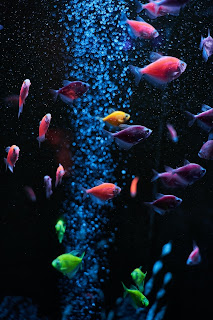This question has perplexed mankind for centuries, with no definitive answer. Now, thanks to cutting-edge research, we may finally have an answer.
What is an Octopus?
An octopus is an invertebrate and a member of the cephalopod family. Octopuses are ...
Octopus are invertebrates and cephalopods. Octopuses are highly intelligent creatures that can be quite dangerous if provoked. They have eight arms and two tentacles. They are able to squirt ink and use their tentacles to catch food.
Are Octopuses Fish?
An octopus is not a fish, but it is an invertebrate. Octopuses belong to the phylum cephalochordata which includes the jellyfish and the nautilus. Like other cephalochordates, octopuses have a bilateral symmetry. They have eight arms and two tentacles. They also have a central body with a mantle that they can use to escape from danger or to capture prey. Their eyes are located on top of their head and they have large suckers on their tentacles
The Anatomy of an Octopus
Octopuses are a type of cephalopod, which is a group of invertebrates that includes squid, cuttlefish, and nautilus. Octopuses are unique in that they have two layers of skin: an outer layer of tough, waterproof cells and an inner layer made up of more delicate cells. The outer layer helps octopuses escape from predators and the inner layer provides insulation for the octopus. Octopuses have eight arms (the second most in number among invertebrates) with sucker disks on their tips that they use to capture prey. They can also change the color and pattern of their skin to camouflage themselves.
Treating an Octopus Injured or Sick
Octopus are invertebrates, meaning they lack a backbone. This makes them very different from fish and other vertebrates, which have a spinal cord that allows them to move their limbs and body. Octopuses also have eight arms rather than five, giving them more flexibility and dexterity when handling food.
Octopuses are not easy creatures to treat in an emergency situation. Many of the same techniques used for treating fish injuries or illnesses won't work on octopuses - they simply don't have the anatomy to tolerate conventional treatments. In fact, many of the treatments Octopuses do tolerate, such as antibiotics or painkillers, can be dangerous if given in too high of doses or if they're not specifically prescribed for Octopuses.
If you find an octopus injured or sick, your first priority is to remove any sharp objects that could injure it further. If the octopus is able to move, place it in a container filled with fresh water and half a cup of salt per gallon. If the octopus is unable to move, rinse it off and dry it off with a towel. Place it in its container and top off the water as needed. If you're able to get pictures or
Conclusion
Yes, an octopus is a fish. But that doesn’t mean it can’t be cooked in different ways or used in different recipes. In fact, if you are looking for an unusual seafood dish to try out, octopus might just be the perfect option for you. So next time you are grocery shopping and see an octopus display, don’t be afraid to pick one up and give it a try!




